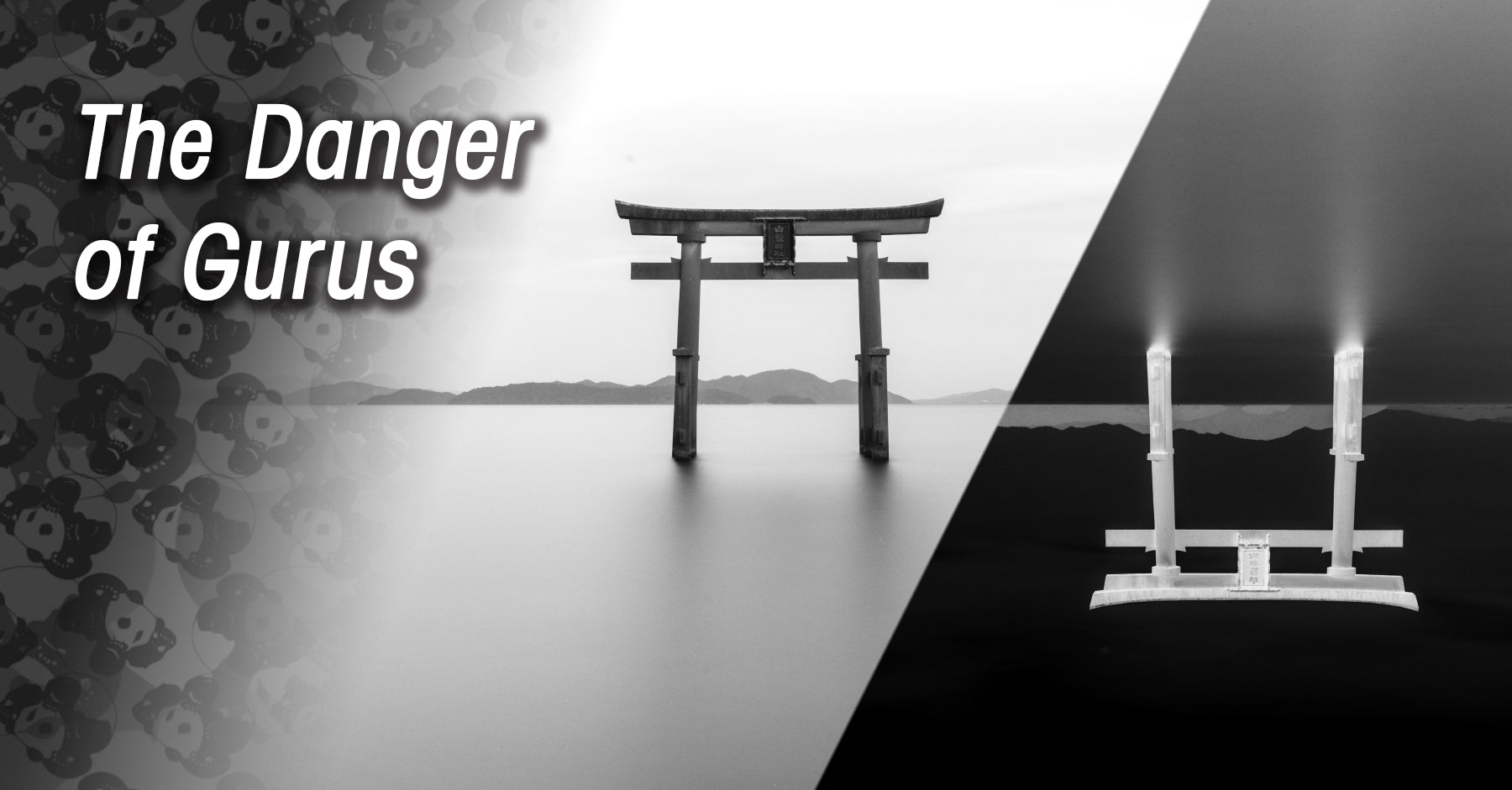
The Danger of Gurus
When I first started training at a real jiu-jitsu school, the upper belts and the instructors seemed super human. The school had just moved into a sparkling new building, and the instructor had just one brown belt worlds (the biggest jiu-jitsu accolade to make its way to Pittsburgh at the time, an era where the UFC was just beginning to blossom on SpikeTV). I was at the start of my jiu-jitsu adventure, and I was looking for my place in the world.
I made a classic error, and it is one I see the new jiu-jitsu students of today making as well.
I fell into what seems to be a common phenomenon for human beings: We see a person who has had success in one arena and assume that their savvy applies to all aspects of life. Our love for that one thing they are really good at blinds us to that person’s humanity. For me, I fell into it because I was actively looking for mentors and role models in my life, so it felt only natural that the person who I came to for jiu-jitsu advice could also give me advice on what I should do next in my career or in my personal life.
Writing that out feels weird, but I have seen it happen enough in our sport to know that many of us start looking for answers beyond jiu-jitsu without ever leaving the jiu-jitsu bubble. We see jiu-jitsu heroes and suddenly believe that they are heroes in all respects.
When I say we, I mean myself as well.
One MMA fighter--a popular one who is still active today and often applauded for being a “great guy”--scheduled an interview with me. I was a big fan, so I was elated to get the chance to have a conversation with him for an article. I called at the appointed time. He answered from what sounded like a busy gathering.
I got one question in and we disconnected.
I called back. No answer.
I called back a second time. He picked up the phone and said, “F*** off.” And hung up.
My editor shrugged it off and told me that it happened all the time. I shouldn’t let it get to me. He added, “Martial arts does not make you a good person.” I would later hear that sentiment repeated many times over as gym scandals and stories of student mistreatment surfaced around the jiu-jitsu community in the years to come, but at that moment it was jarring.
As my training continued and I met and worked with more instructors, I began to see how human the most invincible athletes in our sport really were. Sure, they were masterful technicians, but they were just as flawed as I was. Some had troubled marriages. Some were bad at managing their finances. And, sure, others were outright criminals. They were people. Flesh and blood with all of the normal highs and lows of regular folk.
That means that I should not expect some magical experience when I meet hero of the fight community, and that also means I should not expect a jiu-jitsu instructor to have the answers for problems off the mat. Some instructors might, but being good at armbars does not automatically qualify someone to give you advice elsewhere.
I find that I get more out of the sport this way. It takes a great deal of pressure off of my expectations for the jiu-jiteiros I do meet, which is more fair to them and me in the long run. And now, as someone who should be reasonably considered an adult, I am careful about who I look to for advice and who I look up to. It makes for less heartache, but it also means that I get to the right experts for the right challenges much more quickly rather than expecting a martial art to transform all aspects of my life in some sort of Hollywood way.
Other articles:
Quick links
Contact us
About us
Quality BJJ gear at fair prices, available all year. Founded in 2012 to provide an alternative to high-cost, limited edition gis. Dive into the BJJ lifestyle with us—join the Panda Nation!"
